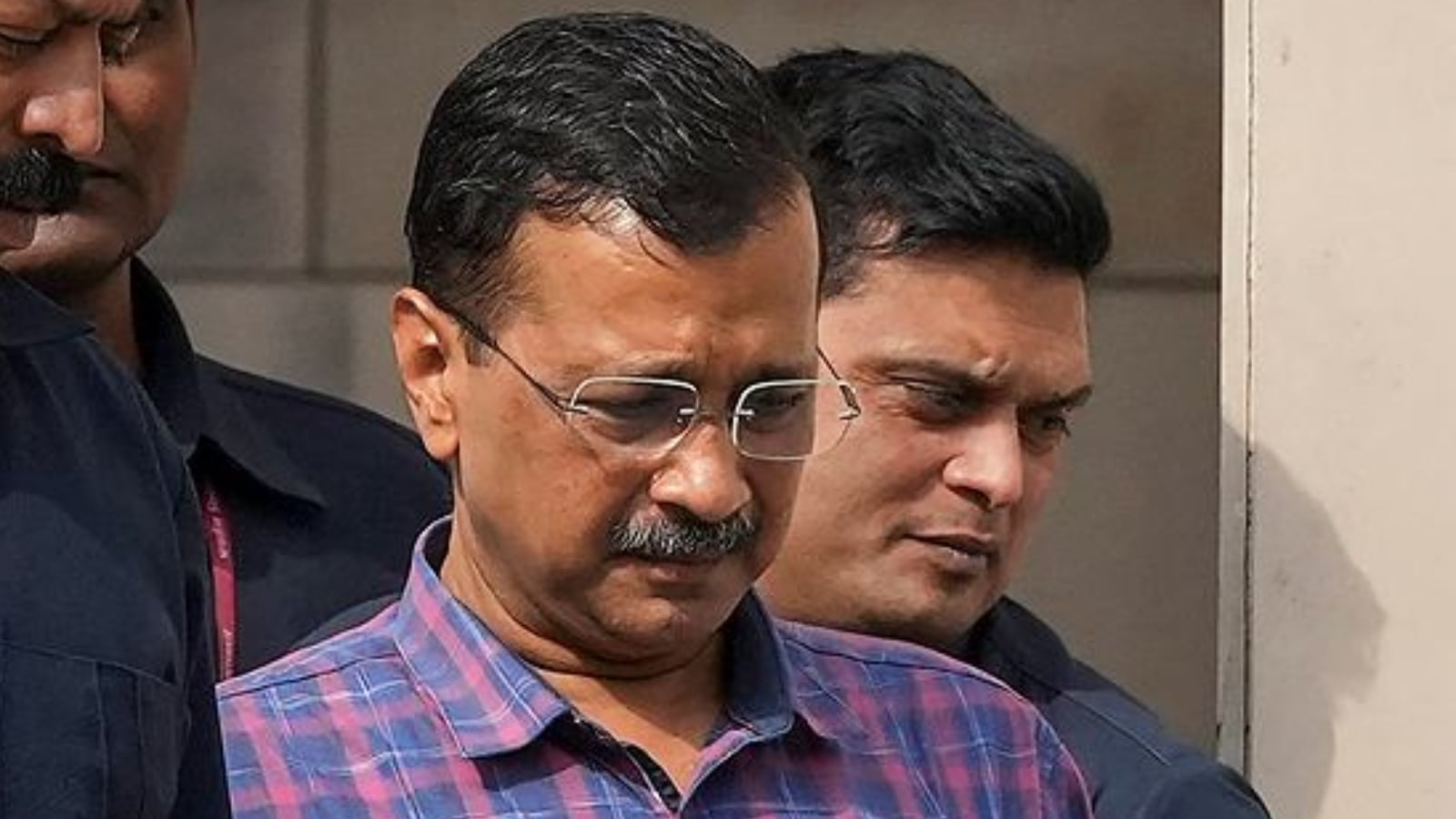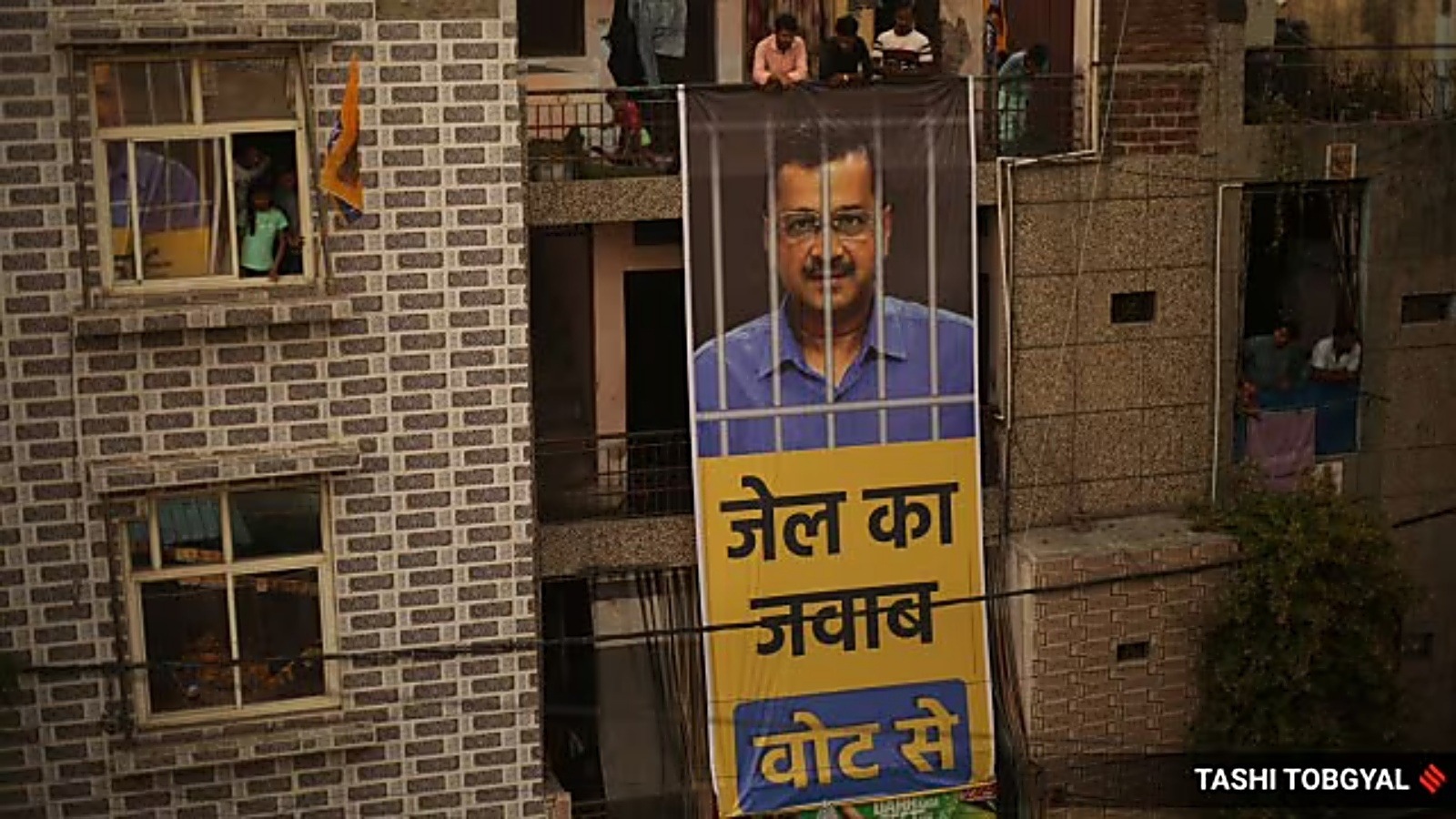Opposing any move to grant interim bail to Delhi Chief Minister and AAP leader Arvind Kejriwal to let him campaign in the Lok Sabha elections, the Enforcement Directorate (ED) has told the Supreme Court that “any special concession” to him will “amount to anathema to the rule of law and equality… thereby creating two separate classes in the country viz. ordinary people, who are bound by the rule of law as well as the laws of the country, and politicians who can seek exemption from the laws”.
In an affidavit filed Thursday — a day after the Supreme Court said it “may” pronounce an order on the interim bail Friday — the ED, which arrested Kejriwal on March 21 in the Delhi excise policy case, said any such bail will “violate the cherished values of the Constitution which upholds the rule of law as a basic feature meaning thereby that howsoever high you might be, you are not above the law”.

“The right to campaign for an election is neither a fundamental right nor a constitutional right and not even a legal right,” the ED said, maintaining that to its knowledge, “no political leader has been granted interim bail for campaigning even though he is not the contesting candidate”.
It said “even a contesting candidate is not granted interim bail, if he is in custody, for his own campaigning” and that “even the right to vote while in judicial custody, which is considered by this Court as a statutory/constitutional right, is curtailed by statute by virtue of section 62 (5) of the Representation of the People Act, and upheld” in the 1997 ruling in Anukul Chandra Pradhan v Union of India.
 Kejriwal, the ED said, had cited “his preoccupation in the Rajya Sabha elections to avoid the summons” dated December 22, 2023 and Goa elections to avoid the summons dated January 12, 2024.
Kejriwal, the ED said, had cited “his preoccupation in the Rajya Sabha elections to avoid the summons” dated December 22, 2023 and Goa elections to avoid the summons dated January 12, 2024.
After the ED filed its affidavit, the AAP, in a press release, said, “The legal team of Delhi Chief Minister and AAP National Convenor, Shri Arvind Kejriwal, has raised strong objection to the affidavit filed by the Enforcement Directorate (ED) opposing interim bail in the Supreme Court.”
“A formal complaint has been lodged with the Supreme Court’s registry denouncing the ED’s affidavit as a blatant disregard of legal procedures, especially considering that the matter is already slated for a final decision in the SC tomorrow and the affidavit was submitted without taking the SC’s approval,” the AAP said in its release, contesting the charges levelled by the ED against Kejriwal.
The ED, in its affidavit, pointed out that “around 123 elections have taken place in the last 5 years” and said “if interim bail is to be granted for the purpose of campaigning in an election, then no politician can be arrested and kept in judicial custody since elections are all-year-round phenomena”.
Story continues below this ad
“In a federal structure, no set of elections is more significant than another and therefore, every politician at every level would argue that if he is not let out on interim bail, he would suffer irreversible consequences,” the ED stated.
“Under the Prevention of Money Laundering Act alone, presently there are many politicians who are in judicial custody and their cases are examined by competent courts upholding their custody. There must be several political leaders in judicial custody throughout the country in non-PMLA offences. There is no reason why a special prayer for a special treatment by the petitioner be acceded to,” it stated.
The agency contended that “grant of interim bail merely for political campaigning would militate against and will be discriminatory to the rule of equality as work/business/profession or activity of every citizen is equally important to him or her. It would not be possible to hold that work of a small farmer or a small trader is any less important than political campaigning of a political leader who admittedly is not contesting”.
The ED said Kejriwal had cited “the very same excuse of state elections in 5 states” in his reply dated November 2, 2023 to summons dated October 30, 2023 “in order to avoid the summons… and during the arguments on interim bail… is setting up the same ground of campaigning in general elections to seek interim bail”.
Story continues below this ad
It said if the court grants Kejriwal interim bail, “it will be giving judicial imprimatur to” his action “to avoid summons citing the reason of campaigning in state elections being a ‘star campaigner’ of the Aam Aadmi Party” and “seek interim bail for campaigning for Aam Aadmi Party in the general elections, thereby carving out a separate class in favour of politicians who wish to campaign for their respective political parties”.
Kejriwal, the ED said, had cited “his preoccupation in the Rajya Sabha elections to avoid the summons” dated December 22, 2023 and Goa elections to avoid the summons dated January 12, 2024.
It said the AAP leader had “for the past 6 months… cited one election or the other, be it state elections, or Rajya Sabha elections, as the reason for not complying with the law which an ordinary citizen would be otherwise obliged to follow”.
The agency said “a politician can claim no special status higher than that of an ordinary citizen and is as much liable to be arrested and detained for committing offences as any other citizen” and that “if the right to campaign is treated as a basis for grant of interim bail, it would breach the principles of Article 14 for the reason that harvesting for a farmer would be an equally important factor seeking interim bail as would a board meeting or an annual general meeting for a director of a company who commits a crime as these are their respective vocations or professions”.
Story continues below this ad
“There is absolutely no principle which justifies giving a differential treatment to a politician for campaigning over a farmer or a businessman who wishes to pursue his vocation. The other categories may equally cite irreversible injury to their vocation or profession if not released on bail. However such consideration has been held to be totally alien for grant of bail or interim bail”, it said.
The ED said “the consistent approach of” the “Court has been to relegate parties to the remedy of bail under CrPC when they had challenged their arrest claiming it to be illegal” and referred to the cases of AAP leaders Sanjay Singh and Manish Sisocia and Bharat Rashtra Samithi leader K Kavitha, also accused in the excise policy case.
It said “the reason to believe on the basis of material in possession of Investigating Officer that the petitioner is guilty has been upheld by a Special Court manned by a judge of the rank of a session judge as well as the High Court who have independently applied their mind and the reasons to believe has withstood the scrutiny by two courts of law” and “this by itself is sufficient to demonstrate that the petitioner has no prima facie case”.
“In light of the above, any special concession in favour of the arrestee enlarging him on interim bail for campaigning in general election would, in the humble submission of the respondent, amount to anathema to the rule of law and equality and create a precedent which would permit all unscrupulous politicians to commit crimes, avoid investigation under the garb of one election or the other be it municipal election, or panchayat election or assembly election or general election and thereafter upon being arrested, seek interim bail to campaign for one election or the other thereby creating two separate classes in the country viz. ordinary people who are bound by the rule of law as well as the laws of the country and politicians who can seek exemption from the laws with the hope of securing interim bail to campaign for elections”, it said.
Story continues below this ad
“Such an approach would incentivise every criminal to become a politician and being in campaign mode throughout the year while committing rampant offences and violations of laws in the country”, the ED said, adding that in the light of these, “interim bail deserves to be rejected as it would not only be contrary to settled principles of law but violate the rule of law which is a basic feature of the Constitution”.



 Kejriwal, the ED said, had cited “his preoccupation in the Rajya Sabha elections to avoid the summons” dated December 22, 2023 and Goa elections to avoid the summons dated January 12, 2024.
Kejriwal, the ED said, had cited “his preoccupation in the Rajya Sabha elections to avoid the summons” dated December 22, 2023 and Goa elections to avoid the summons dated January 12, 2024.





